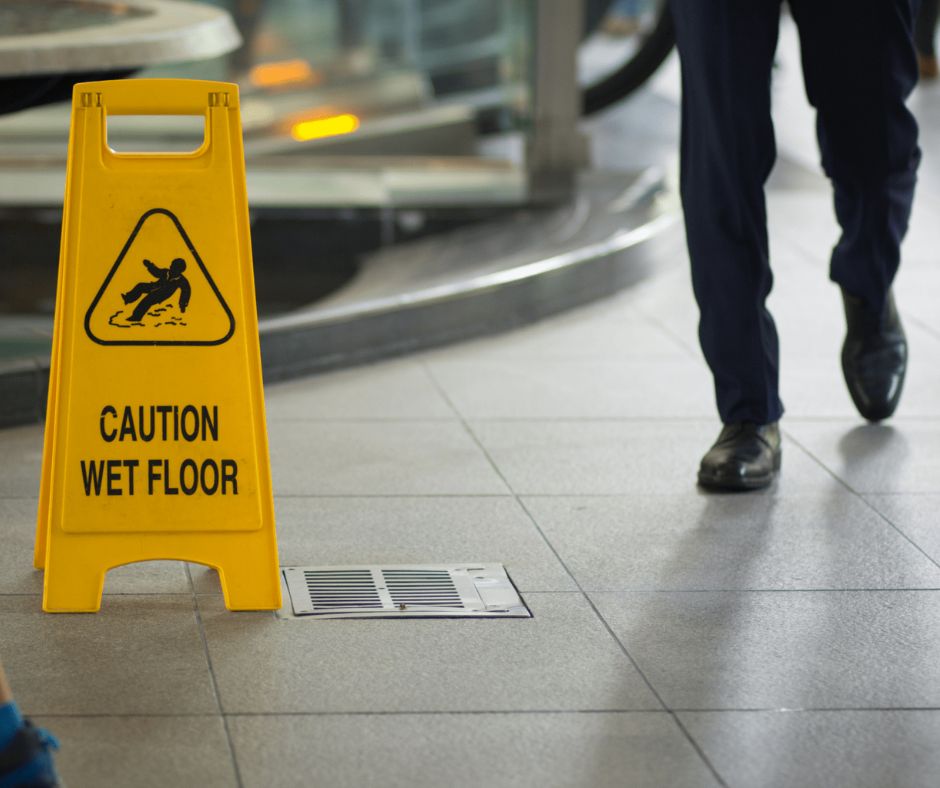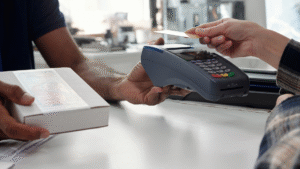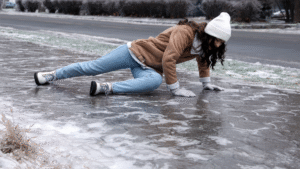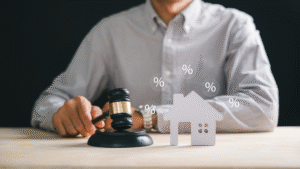
What happens when a routine visit to your favorite café or walking through a neighborhood park becomes an unexpected injury? Suddenly, questions of safety and responsibility loom large. That is where the legal concept of premises liability comes into the picture. At its core, a premises liability claim is a legal pathway for individuals injured on another’s property to seek compensation.
It rests on the principle that property owners must ensure their grounds are safe for visitors. From icy sidewalks that haven’t been salted to poorly lit stairwells in an office building, the scenarios that can lead to such claims are as varied as they are unexpected.
Premises Liability Definition
A premises liability claim arises when an individual is injured due to a property owner’s failure to maintain a safe environment. Whether you slipped and fell at the grocery store or had an accident at a friend’s house, knowing your rights is the first step toward seeking justice. Premises liability accidents encompass a wide range of scenarios, each highlighting the importance of property owners’ responsibilities towards maintaining their premises.
Different Types of Premises Liability Cases
We’ve mentioned a couple of examples of what might constitute a premises liability claim. The most common we see can be categorized as follows:
- Slip and falls—often due to unaddressed spills, icy walkways, or tripping hazards like uneven carpeting;
- Inadequate maintenance—injuries resulting from neglected repairs, such as faulty staircases, loose floor tiles, or crumbling infrastructure;
- Insufficient security—cases where poor lighting, lack of security cameras, or absent personnel lead to assaults or thefts on the property;
- Dog bites—incidents occurring in areas where pets are not properly restrained or controlled, leading to injuries; and
- Swimming pool accidents—include accidents due to inadequate fencing, absence of lifeguard supervision, or improperly maintained pool areas.
These examples highlight the diverse scenarios giving rise to a premises liability claim, but it’s not an exhaustive list. If you believe you have a potential claim, contact Brett McCandlis Brown & Conner to schedule a consultation.
What Duty Does a Property Owe?
The duty a property owner owes to individuals on their property varies significantly based on the visitor’s status. Generally, these statuses are categorized as invitees, licensees, and trespassers, though the exact definitions and the duties owed to each can differ from state to state.
Invitees
Invitees are individuals who enter a property with the owner’s express or implied permission for mutual benefit. This category typically includes customers in stores, guests in hotels, or attendees at public events. Property owners owe the highest duty of care to invitees, ensuring the premises are safe and warning of any known dangers.
Licensees
A licensee enters the property for their own purposes but with the owner’s consent, such as social guests or door-to-door salespeople. The duty owed to licensees is to warn them of non-obvious dangers that the owner is aware of. Still, it typically does not extend to inspecting the property to discover dangers.
Trespassers
Trespassers enter without any right or permission. Generally, the property owner’s duty to trespassers is minimal, mainly to refrain from willful or wanton harm. However, a notable exception exists for child trespassers in some states, particularly in cases involving “attractive nuisances” like swimming pools, where owners must take steps to prevent foreseeable harm to children who might be drawn onto the property.
It’s crucial to understand that nuances in local laws can affect the specifics of your case. Property owners must be mindful of these distinctions and their implications for maintaining a safe environment for all visitors.
How to Prove Negligence in Premises Liability Claims
Proving negligence in a premises liability claim hinges on establishing four critical elements:
- Duty of care—requires you show the property owner owed a legal duty to ensure the safety of the premises, based on your status as an invitee, licensee, or even trespasser under specific circumstances;
- Breach of duty—evidence must illustrate that the property owner neglected this duty, such as failing to repair a broken staircase despite knowing about it;
- Causation—you must prove the property owner’s breach of duty directly caused your injury; and
- Damages—the claim must include tangible damages resulting from your injury, such as medical bills, lost wages, or pain and suffering.
Crucial evidence in premises liability claims can include photos of the hazardous condition, maintenance records, witness statements, and surveillance footage. Additionally, medical records linking the injury to the accident on the premises are pivotal in establishing the extent of damages suffered. Together, these elements and pieces of evidence build a compelling case for negligence in premises liability claims.
How Liability Can Impact Your Premises Liability Claim
Understanding how liability affects your potential lawsuit is crucial as laws vary by state. Most states rely on some form of comparative negligence. However, a handful of states use the very restrictive contributory negligence law.
Comparative negligence allows the injured party to recover damages even if they are partly at fault, with the compensation reduced by their percentage of fault. For example, if a court finds you to be 20% responsible for an accident, your awarded damages are reduced by 20%. Some states are pure comparative, meaning you can be 99% at fault and still collect 1% of your damages. Others cut off your right of recovery at 50% or 51% fault.
Contributory negligence bars recovery if you’re even 1% at fault. That can significantly impact the outcome of a claim, making it essential to understand the specific negligence laws in your state. For example, consider a slip and fall claim where the victim was 5% at fault.
In Washington, you would receive 95% of your damages. In a state with contributory negligence, you would receive nothing. An experienced Everett premises liability attorney can walk through this analysis with you and explain your right to recovery.
Types of Damages You Can Recover in a Premises Liability Lawsuit
In a premises liability claim, the damages you can recover are generally categorized into economic, noneconomic, and, in some rare cases, punitive damages. Understanding these can provide insight into what compensation you might be entitled to for your injuries:
- Economic damages. These cover tangible losses such as medical expenses, including hospital stays, medications, physical therapy, and lost wages if the injury prevents you from working. Future medical costs and lost earning capacity are also considered if the injury has long-term impacts.
- Noneconomic damages. This category compensates for intangible losses like pain and suffering, emotional distress, loss of enjoyment of life, and loss of consortium. These damages are subjective and vary significantly from one case to another.
- Punitive damages. Though far less common in premises liability cases, punitive damages may be awarded in instances of gross negligence or intentional harm by the property owner. The right to pursue punitive damages varies by state.
Each type of damage plays a crucial role in ensuring that victims of premises liability incidents are fully compensated for their injuries and the broader impacts on their lives.
Why Hire Brett McCandlis Brown & Conner
Choosing the right legal representation after suffering a personal injury is a pivotal decision. At Brett McCandlis Brown & Conner, our approach sets us apart. With over 40 years of experience, we pride ourselves on providing real solutions to real problems, offering more than just legal advice—we offer a pathway to recovery.
If you or a loved one has been injured in a Washington premises liability accident, Brett McCandlis Brown & Conner is here to help. From the initial consultation to the final settlement or verdict, our team is committed to providing you with the support, guidance, and representation you deserve. Contact us today for a comprehensive evaluation of your case. Let us take on the legal burdens of a premises liability claim so you can focus on healing.


